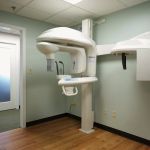Why You Should Treat Sleep Apnea Early
- What is Sleep Apnea?
- The Dangers of Sleep Apnea
- Benefits of Early Treatment for Sleep Apnea
- Symptoms to Watch for in Sleep Apnea
- Available Treatment Options for Sleep Apnea
- How to Start Treatment for Sleep Apnea
- Take Action Now for Your Health
What is Sleep Apnea?
Sleep apnea is a common and serious sleep disorder where your breathing repeatedly stops and starts while you sleep. This condition disrupts your sleep cycle and deprives you of much-needed rest. There are two main types: obstructive sleep apnea (OSA), where the airway becomes blocked, and central sleep apnea, which occurs when the brain fails to signal the muscles to breathe properly. Regardless of the type, untreated sleep apnea can have a significant impact on your overall health, making it crucial to address early on.
The Dangers of Sleep Apnea
If left untreated, sleep apnea can lead to a range of serious health issues, including high blood pressure, heart disease, stroke, diabetes, and depression. The frequent interruptions in breathing prevent the body from reaching deep, restorative stages of sleep, which are essential for physical and mental recovery. Furthermore, untreated sleep apnea can increase the risk of accidents due to fatigue and drowsiness. Addressing this condition early can help prevent these complications and improve your quality of life.
Benefits of Early Treatment for Sleep Apnea
Early intervention in treating sleep apnea offers numerous benefits, including improved sleep quality, reduced daytime fatigue, and a lower risk of developing heart-related issues. By seeking treatment early, you can help restore healthy breathing patterns and prevent long-term health complications. Treatments such as Continuous Positive Airway Pressure (CPAP) therapy, oral appliances, or even lifestyle changes can help manage symptoms effectively. Early treatment also improves your mood and mental clarity, allowing you to enjoy better mental health and daily productivity.
Symptoms to Watch for in Sleep Apnea
Recognizing the symptoms of sleep apnea is essential in seeking early treatment. Common signs include loud snoring, choking or gasping during sleep, excessive daytime sleepiness, difficulty concentrating, and irritability. People with sleep apnea may also experience dry mouth or sore throat upon waking, and headaches. If you or someone you know is experiencing these symptoms, it’s important to consult a healthcare professional for proper evaluation and diagnosis.
Available Treatment Options for Sleep Apnea
There are several effective treatment options available to manage sleep apnea. The most common treatment is CPAP therapy, which involves wearing a mask that delivers continuous air pressure to keep the airways open during sleep. For mild cases, oral appliances may be used to reposition the jaw and tongue, which can help improve airflow. In some cases, weight loss, changes in sleep position, or surgery may be recommended, especially if there is significant airway obstruction. Your healthcare provider can guide you in choosing the right treatment based on the severity of your condition.
How to Start Treatment for Sleep Apnea
To begin treatment for sleep apnea, the first step is to consult with a healthcare provider, such as a sleep specialist, who can perform a sleep study (polysomnography) to diagnose the condition accurately. Based on the results, the appropriate treatment plan can be developed. It’s essential to follow the prescribed treatment, be it CPAP therapy, lifestyle changes, or other options, to ensure the best outcomes. Your healthcare provider will also monitor your progress and make adjustments as necessary.
Take Action Now for Your Health
If you suspect that you have sleep apnea, it’s important to take action sooner rather than later. Early diagnosis and treatment can significantly improve your health and well-being. By addressing sleep apnea, you can avoid serious health risks, get better sleep, and enjoy more energy throughout the day. Don't wait for symptoms to worsen—schedule an appointment with a sleep specialist today and start taking care of your health.
For more information on how to treat sleep apnea, visit Dentistry Toothtruth to explore expert advice and services. Learn how you can improve your sleep and overall health with the right treatment options.







 Dentistry at Sea Girt Dr. John Little, Dr. Mary Russo, Dr. Timothy Moriarty & Dr. Aileen Almonte4.0 (79 review)
Dentistry at Sea Girt Dr. John Little, Dr. Mary Russo, Dr. Timothy Moriarty & Dr. Aileen Almonte4.0 (79 review) Aurora Dental Care4.0 (153 review)
Aurora Dental Care4.0 (153 review) Meadows Dental Care4.0 (277 review)
Meadows Dental Care4.0 (277 review) Oral & Maxillofacial Surgery Associates4.0 (1440 review)
Oral & Maxillofacial Surgery Associates4.0 (1440 review) Sandcreek Dental - Idaho Falls Dentists4.0 (831 review)
Sandcreek Dental - Idaho Falls Dentists4.0 (831 review) Dental365 - Bethpage4.0 (456 review)
Dental365 - Bethpage4.0 (456 review) The Importance of Oral Health Education During Pregnancy for a Healthy Pregnancy
The Importance of Oral Health Education During Pregnancy for a Healthy Pregnancy Best Tips for Brushing Your Teeth Properly for Healthy Gums: Essential Techniques for Oral Health
Best Tips for Brushing Your Teeth Properly for Healthy Gums: Essential Techniques for Oral Health Why Skipping Dental Checkups Can Lead to Bigger Oral Health Problems
Why Skipping Dental Checkups Can Lead to Bigger Oral Health Problems Advantages of Porcelain Dental Restorations
Advantages of Porcelain Dental Restorations How Can Diabetes Cause Tooth and Gum Problems? Preventing and Managing Oral Health Issues
How Can Diabetes Cause Tooth and Gum Problems? Preventing and Managing Oral Health Issues Healthy Habits for Promoting Good Oral Health and Hygiene: Tips for a Healthy Smile
Healthy Habits for Promoting Good Oral Health and Hygiene: Tips for a Healthy Smile